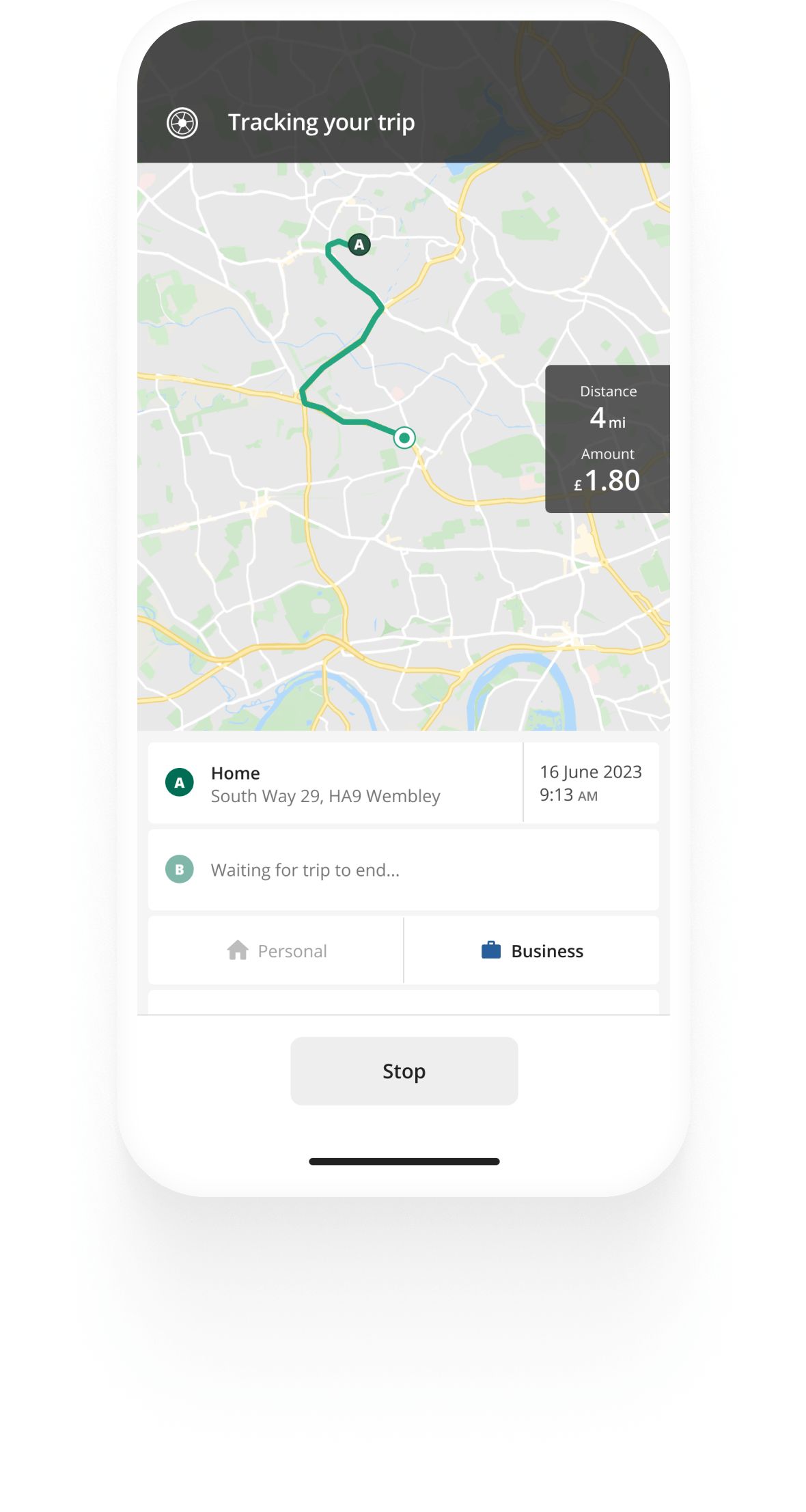Track mileage automatically
Get started.svg)
VAT on mileage claims: How to calculate and claim as an employer
If you're an employer paying mileage to employees who use their own vehicle for work, you can claim VAT on the fuel portion of the mileage allowance you pay out.
Only business owners and employers can claim VAT on mileage. So, if that's you, keep reading! If you're an employee using your personal vehicle for work, visit our blog about mileage allowance for employees.
How to claim VAT on business mileage
- Have employees track their mileage: Keep a log of all business journeys, including dates, destinations, and miles travelled.
- Have employees collect fuel receipts: Save all fuel receipts.
- Use the Advisory Fuel Rates: Refer to HMRC’s rates to find the AFR for the relevant vehicle.
- Calculate VAT: Multiply the business miles by the AFR and then calculate 1/6 of this total to find the VAT amount. You can also use the calculator below.
- Submit your claim: Include your mileage claims in your regular VAT return with all your documentation.
VAT mileage calculator
To calculate the VAT amount you can claim, add the relevant fuel rate in the slider and enter the miles you have reimbursed.


Mileage tracking made easy
Trusted by millions of drivers
Automate your mileage log Automate your mileage log

Automatic mileage tracking and HMRC-compliant reporting.
Get started for free Get started for freeHow VAT on mileage works
To handle VAT on mileage correctly, you’ll first need to understand the difference between Mileage Allowance and Advisory Fuel Rates.
Mileage Allowance
A mileage allowance reimburses your employees when they use their personal vehicles for business purposes. HMRC allows them to claim up to 45p per mile for the first 10,000 miles in a tax year and 25p per mile for any additional miles.
This allowance covers costs such as fuel, wear and tear, insurance, and road tax. However, employers can’t reclaim VAT on the entire mileage allowance.
Instead, you can reclaim it on the fuel portion of the mileage. To determine the fuel portion, you need to use HMRC’s Advisory Fuel Rates (AFRs), which provide the cost of fuel per mile for different types of vehicles.
Also read: Mileage guide and current HMRC mileage rates
Advisory Fuel Rates
Advisory Fuel Rates (AFRs) are set by HMRC to reflect fuel costs per mile for different vehicles and are updated regularly. You’ll need these rates to calculate VAT on mileage.
The AFR for the employees’ vehicles determines the amount of VAT you can reclaim on the fuel portion of their mileage allowance.
For example, if a vehicle's AFR is 12p per mile and drives 1,000 business miles, the total fuel cost will be £120 (miles x AFR). Since VAT is 20% and has already been included in the £120, you need to isolate the VAT from the total. Do this by multiplying the total by 1/6:
120*1/6=20
This means you can reclaim £20 of VAT for those 1,000 business miles driven in a vehicle with an AFR of 12p per mile.
Also read: Advisory fuel rates for 2025
What employers can’t claim VAT on
Unfortunately, you can’t claim VAT on:
- Personal mileage (which includes personal trips and commuting from home to your regular place of work);
- Mileage expenses if your business is not VAT registered and
- Mileage expenses if you use the flat-rate VAT scheme.
Keeping records
Keeping accurate mileage logs and fuel receipts can make your tax calculations easier and help distinguish between business and personal travel.
How do you keep track of vehicles?
As a smaller business, you might think mileage admin for employees is costly and complex. However, a simple solution like Driversnote for Teams—combining a mileage tracker app with beacon technology—can help. It streamlines approvals, minimises admin and reduces your team's mileage workload.
FAQ

Tired of logging mileage by hand?
Effortless. HMRC-compliant. Liberating.
Latest posts
- Free mileage log book template
- Mileage claim calculator for the UK
- Benefit in kind (BiK) tax on company cars
Related posts
Free mileage log book template
27 March 2025 - 2 min read
Whether you're an employee or a business owner, it's crucial to keep good mileage records in a mileage log book.
HMRC Mileage Guide
13 February 2025 - 5 min read
Welcome to our guide on mileage claims and reimbursement in the UK. This guide will walk you through the rules that apply to your situation.
Free mileage log book template
27 March 2025 - 2 min read
Whether you're an employee or a business owner, it's crucial to keep good mileage records in a mileage log book.
.svg)
